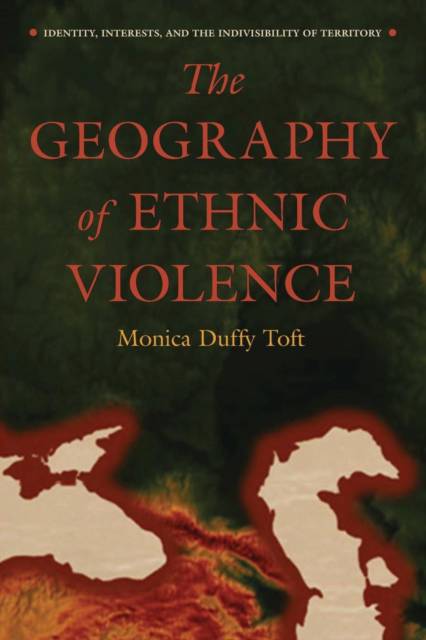
- Retrait gratuit dans votre magasin Club
- 7.000.000 titres dans notre catalogue
- Payer en toute sécurité
- Toujours un magasin près de chez vous
- Retrait gratuit dans votre magasin Club
- 7.000.000 titres dans notre catalogue
- Payer en toute sécurité
- Toujours un magasin près de chez vous
The Geography of Ethnic Violence
Identity, Interests, and the Indivisibility of Territory
Monica Duffy Toft
Livre broché | Anglais
67,95 €
+ 135 points
Description
The Geography of Ethnic Violence is the first among numerous distinguished books on ethnic violence to clarify the vital role of territory in explaining such conflict. Monica Toft introduces and tests a theory of ethnic violence, one that provides a compelling general explanation of not only most ethnic violence, civil wars, and terrorism but many interstate wars as well. This understanding can foster new policy initiatives with real potential to make ethnic violence either less likely or less destructive. It can also guide policymakers to solutions that endure.
The book offers a distinctively powerful synthesis of comparative politics and international relations theories, as well as a striking blend of statistical and historical case study methodologies. By skillfully combining a statistical analysis of a large number of ethnic conflicts with a focused comparison of historical cases of ethnic violence and nonviolence--including four major conflicts in the former Soviet Union--it achieves a rare balance of general applicability and deep insight. Toft concludes that only by understanding how legitimacy and power interact can we hope to learn why some ethnic conflicts turn violent while others do not. Concentrated groups defending a self-defined homeland often fight to the death, while dispersed or urbanized groups almost never risk violence to redress their grievances. Clearly written and rigorously documented, this book represents a major contribution to an ongoing debate that spans a range of disciplines including international relations, comparative politics, sociology, and history.Spécifications
Parties prenantes
- Auteur(s) :
- Editeur:
Contenu
- Nombre de pages :
- 256
- Langue:
- Anglais
Caractéristiques
- EAN:
- 9780691123837
- Date de parution :
- 06-11-05
- Format:
- Livre broché
- Format numérique:
- Trade paperback (VS)
- Dimensions :
- 156 mm x 239 mm
- Poids :
- 349 g







